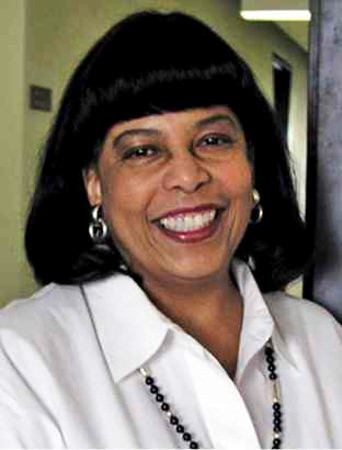
Dr. Bettye Collier-Thomas is no stranger to receiving awards. Former director of the Temple University Center for African-American History and Culture and a professor in the Department of History, Dr. Collier-Thomas is a distinguished lecturer for the Organization of American Historians, founder and first executive director of the Bethune Museum and Archives in Washington, D.C. and author of three award-winning books.
Collier-Thomas has received multiple research grants from the Lilly Endowment, the Ford Foundation, the Rockefeller Foundation and the National Endowment for the Humanities. She was awarded the Carter Godwin Woodson Distinguished Scholars Medallion in 2001 from the Association for the Study of African American Life and History and holds fellowships at the Woodrow Wilson International Center for Scholars in Washington, D.C., the National Humanities Center and Princeton University.
While on sabbatical serving as a public policy scholar at the Woodrow Wilson International Center for Scholars, The Temple News sat down with Dr. Collier-Thomas to discuss what Black History Month means to her and her experiences of being a distinguished scholar.
The Temple News: What does Black History Month mean to you?
Bettye Collier-Thomas: As an historian, I recognize the importance of Black History Month as a time of reflection on the history and accomplishments of a people that continue to struggle for equality and social justice in a society that has not quite overcome its past. As an American, I am proud of how far we have come in the struggle to recognize the humanity of all of our people regardless of race, ethnicity, gender, religion and sexuality. As a black American I know that it is important that we keep this history alive and share it – if only for a month – with the millions who are bombarded by the media daily with misinformation.
TTN: Your publications, specifically award-winning anthology “Sisters in the Struggle: African-American Women in the Civil Rights-Black Power Movement” and the highly celebrated and award winning “Jesus, Jobs, and Justice: African American Women and Religion” have received widespread acclaim. What has been the impact of this national acclaim on you and your current work?
BCT: “Jesus, Jobs, and Justice” has brought greater recognition to me and my scholarship. The acclaim has had little impact on me as a person. I am still the same down-to-earth scholar that I have been. I am currently researching and writing “‘In Politics to Stay:’ A History of African-American Women and Politics, 1865-2008.” Hopefully, the national acclaim for “Jesus, Jobs, and Justice” will stimulate interest in my current work which grows out of and builds upon my previous scholarship.
TTN: During your sabbatical in 2011-12 you are serving as a public policy scholar at the Woodrow Wilson International Center for Scholars in Washington, DC. How are scholars chosen for these coveted positions?
BCT: The Woodrow Wilson International Center for Scholars was established as part of the Smithsonian Institution by act of Congress in 1968. Its purpose is to provide “a link between the world of ideas and the world of policy,” foster research, study, discussion and collaboration among individuals concerned with governance, policy and scholarship in both national and world affairs. The competition for Wilson Center fellowships, and to be named a senior scholar or public policy scholar at a premier research center, such as the Wilson Center, is stiff. Individuals interested in fellowships, and being considered for appointments as public policy scholars and senior scholars submit proposals which undergo a rigorous vetting process. Public policy scholars and senior fellows are selected and invited by the director of the Wilson Center.
TTN: What does your work at the Wilson Center entail?
BCT: This is my second stint at the Woodrow Wilson Center. In 2008-2009, as a fellow, I began the research on black women and politics. In the fellowship proposal, I asserted that “Contemporary policy issues are based upon municipal, state, ad national governmental official perceptions and concerns of the electorate,” “We Are in Politics, and in Politics to Stay: African American Women and Politics” will trace the history of black women’s involvement in the political process, and illustrate the relationship between their political agenda and their lives as black women. It will provide politicians and governmental agencies with the kind of data and policy discourse needed to make balance and informed public policy decisions.
As a public policy scholar in 2011-12, I am continuing that research. My aim is to produce a book-length publication – the first comprehensive study on black women and politics. Given that there is no published book-length general history of African Americans and politics, this work will contribute to the larger history of American politics and the significant role of black Americans in that enterprise.
TTN: What do you consider to be some of your most important accomplishments in the areas of American history, African-American and women’s history and what will be your legacy?
BCT: First and foremost, let me say that I don’t know what my legacy will be. I hope that I will be recognized for my overall accomplishments as a teacher, scholar and founder and that my work will have a salutary impact on the research and interpretation of American history, African-American and women’s history. It is too early to predict the outcome.
Alexandra Olivier can be reached at alexandra.olivier@temple.edu.


Be the first to comment